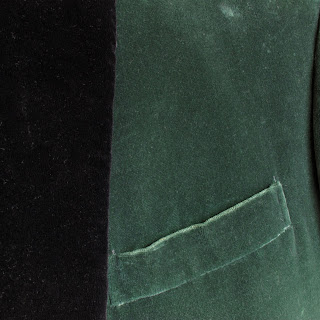I’m cheating; it’s not the ring I’m interested in. It’s resting on a tool I used to make it: a screwdriver made in 1900, which belonged to my great grandfather, an engineer.
The wide, heavy tang stamped with its date of manufacture looks unbreakable; the wooden handle is oily-dark from four generations of hands; the flattened, splayed base has been struck with a hammer many times. This is a true tool.
But what really interests me is the way family history reduces us all to fragmentary, one-line lives. My great-grandfather: chief engineer on the RMS Mauretania; died bankrupt. My grandfather: engineer and entrepreneur; insisted on paying off his father’s debts before marrying my grandmother; my father: soldier and banker; I'm too close to say what else.
Together, these biographic synecdoches become our roles in a family narrative. It’s curious to think that the elements of my life that will join that narrative may not yet have happened. Or worse, they may already be behind me.





























